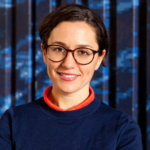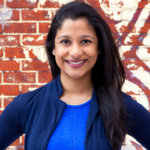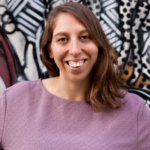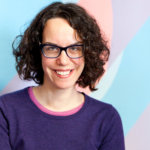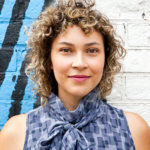How do you center your community as you do research?
Equity is about process and outcomes. Making sure everyone has the same access and opportunity requires a skillset many of us are striving to learn. This podcast examines issues of equity and equity-focused research, and offers valuable insights for nonprofits looking to make research practices and their organization less biased.
Transcript
Sarah Durham: Welcome to The Smart Communications Podcast. I’m Sarah Durham, and I’m joined today by Seema Shah, Ph.D. Welcome, Seema.
Seema Shah: Thanks Sarah. It’s great to be here.
Sarah Durham: For those of you who don’t know Seema, she has an impressive career spanning two decades in the academic, nonprofit, and philanthropic sectors. She now heads up her own consulting company COMM|VEDA. But before that she’s worked internally in a number of nonprofits, both working as a deputy director for a family foundation and spearheading the research efforts at the Foundation Center, as the director of research for special projects there for many, many years. She will tell you a little bit more about what she does and her firm as we get into this podcast, but suffice it to say that in the nonprofit sector, when it comes to the intersection of research and thinking about equity in research, I believe that Seema is one of the foremost thinkers in this space, and I’m delighted to have her here today. So Seema, welcome. What else should we tell our listeners about you before we dig into our topic today?
Seema Shah: Well, thank you Sarah, for that kind and generous introduction. You know I get a lot of questions about the name of my firm. It’s COMM|VEDA Consulting, and so I’ll just share the story behind the name, which is that COMM represents community, and VEDA is the Sanskrit word for knowledge. And so the name COMM|VEDA Consulting really represents my belief that community-based knowledge, community-based expertise and community-driven solutions really have an essential role in strengthening the work that we do in the social sector and nonprofit arena. So I just wanted to emphasize that and, you know, just to add that a lot of the work that I’ve done over the past three and a half years through my consulting practice has been around equity, issues of equity, and equity-focused research.
Sarah Durham: And that’s the topic we’re going to dig into today. We’re going to be talking about equity and research. What you can help us learn about it, and what tips and tools you can share with people who are trying to make research practices and their nonprofits more equitable. We’re also going to link to the COMM|VEDA Consulting website in the show notes, but Seema for those folks who don’t check out the show notes, what’s the URL for your business. So people know where to find you.
Seema Shah: Sure. It’s COMM|VEDA, c-o-m-m-v-e-d-a.com.
Sarah Durham: Okay, great. So let’s dig in, as you just mentioned, you have a real focus in equity in your work. Let’s unpack that term. What is equity?
Seema Shah: Yeah. You know, equity is such a buzzword, these, and so I’m glad we’re taking a few minutes upfront to really unpack it. I would start by saying that equity is about process and outcomes. So a lot of times we think about the outcomes, the results of our work. So when we’re thinking about equitable outcomes, we’re thinking about, for example, kids of color, kids from different racial backgrounds. So making sure that they have the same educational opportunities and same educational outcomes that white kids do. When we’re talking about gender equity, it can mean making sure that men and women are getting equal pay for equal work. And when we’re talking about healthcare, it can mean making sure that people in low-income neighborhoods have the same access to quality healthcare and have similar life expectancies as those living in wealthier neighborhoods. So again, a lot of times when we talk about equity, we’re thinking about those outcomes that we want to achieve in the world so that things are more equitable for all of us.
Seema Shah: But I also want to talk about the fact that equity is also about process. So it’s about how we do our work. Are we being inclusive? Who’s making the decisions? Are we including different voices in that decision-making process? Are we sharing power with people from diverse backgrounds? So people of color, women, people who are differently-abled and really thinking about those who are directly impacted by the issues that we’re working on. How are they engaged in the decision-making process? So that is also a big component of equity. And I would argue that it’s really hard to get to those equitable outcomes that we want to see if the processes that we’re using are not equitable as well.
Sarah Durham: Just this morning, before you and I started recording, I was just editing a terrific blog that a couple of members of the Big Duck team are working on that is about forming equitable and inclusive working groups, and designing equitable processes for leading big communications projects. So I’m not sure when that blog is going to go public, but I will definitely share it with you. And I’ll link to it in the show notes for our listeners too. It’s written by Sarita Joseph and Maya Ovrutsky on the Big Duck staff. Okay. So Seema, how does equity show up in your work?
Seema Shah: Just to ground it a little bit and to give an example, I think one of the ways that issues of equity show up most starkly in our work is just in the demographics of the nonprofit sector. For example, if we’re talking about racial equity, 84% of nonprofit board members are white, 82% of nonprofit executive directors are white, and there’s a great organization called Building Movement Project that did some research just this past year with nonprofit organizations. And they found of the thousands of nonprofit organizations that they surveyed, 64% of the nonprofit organizations said that more than half of their constituents, the people that they want to serve through their work are people of color. So right there, there’s some mismatch. And I think it’s unwise to assume that leadership that are predominantly white will always be attuned to the needs and priorities of communities of color. So I think when it comes to research and the ways that nonprofit organizations might use research to sort of inform their work, I think about that old adage of garbage in, garbage out. So if we’re not asking the right questions to the right people, we’re not going to have the information we need to design programs, to design communications, to really design the work of the organization effectively. And as a result, we’re not going to have the impact that we desire.
Sarah Durham: Cause we won’t be centering the work and the voices of the people who are arguably most central to the work itself.
Seema Shah: Exactly.
Sarah Durham: So let’s talk a little bit about equity in research. And before we dig into that, I guess one of the things I’m thinking about as I’m listening to you talk is that so many organizations actually don’t do a lot of research. I had this eye-opening experience years ago, probably five or six years ago, where I was invited to go to a fundraising conference in the Netherlands called the International Fundraising Congress. I was invited to come and speak about a book I had written. And when you go to this conference, you spend three or four days at this conference center and there are all these different sessions going on. So I was sitting in on a lot of other sessions and one of the things I was struck by was how many organizations, in the EU in particular, were giving presentations that were heavily grounded in research. That these were organizations who were spending a lot of time and a lot of money to research the communities that they serve, the issues that their constituents care about and that it was culturally, it felt very different.
Sarah Durham: I was reflecting that in the U.S. at least in my 20 something years, working with nonprofits, it’s quite common for organizations to not do research at all. To not really be aware of how the audiences they serve, their key stakeholders, the public feels about them or about their issues. So research, I would say even just as a backdrop is like an under-utilized tool that can have really transformative effects for the outcomes of our work. So I hope that everybody who’s listening is thinking about that and is elevating the importance of doing research to uncover some of these issues. So let’s talk about that. Why is it important to think about equity and research?
Seema Shah: Great question. And I think, you know, just to follow up on what you were saying, you’re right. Research is, I think an underutilized tool and resource within the nonprofit sector here. And I think a lot of people find it intimidating. So hopefully this conversation today will make it a little bit more accessible for folks and, you know, kind of underscoring some of the different ways that even a modest research effort can really help engage communities in thinking about how to improve and strengthen your programs, and really just get better information. And thinking about equity and research. I come back to this idea of taking a participatory approach that engages those directly impacted in the research process. So really thinking about this as something that is done with communities, and not to communities. So a lot of times I get asked, you know, by nonprofit organizations to come in and do a survey or do a focus group and then write up the results and it ends up being a fairly transactional process.
Seema Shah: But if we’re really centering equity, I think that means thinking about again, how we’re doing the work. And if we want to design a survey, we want to design a focus group protocol to, for example, get a sense of the services that are needed by communities, one strategy and one approach to make sure that those tools are really speaking to the actual needs that communities have is to engage a community advisory group and actually designing those instruments. So that the survey, so that the focus group protocol, is really tapping into what is important to those communities. It’s also a way of sharing power and making sure that the communities we serve have a sense of agency in the process and that they have buy-in around the information that’s being collected. And then once that data comes in, I think it’s also good practice to engage your community in the sense-making process.
Seema Shah: So what are the patterns in the data? What stands out? What are the reasons for the trends that we’re seeing? And a lot of times there are community or cultural factors that contribute to what we’re seeing in the data that I, as an outside researcher with my own set of experiences and biases might not be attuned to. So I can share an example from a project that I did with a nonprofit organization recently, and they were interested in understanding what kinds of barriers young women of color had in participating in a program. And so before I designed the survey, I spent time talking to alumni and students from the program just to understand what their experiences were before I sort of put together the survey. And there were things that came up that I wouldn’t have thought of. So, you know, we think about young women potentially having challenges around taking care of young children, taking care of their kids.
Seema Shah: But in these conversations, what we found is that participants in the program were talking about not just caring for their kids, but caring for other family members, caring for younger siblings. And that’s not necessarily something that I would have thought about beforehand if we hadn’t engaged them in that process. Another example is, you know, with the same group of folks, this program provides transportation stipends to make the program accessible. But in talking to participants, it turns out that that transportation stipend wasn’t enough to remove the barrier of transportation because of the long distances that some people had to travel to get to the program site. So this was, again, something that we were able to account for in the survey that we might not have integrated if we had not had those conversations beforehand. And so the moral of that is that when we got the data back, we were able to capture a fuller and broader range of experiences that participants had. And the program was better able to kind of adjust its practices to address those barriers.
Sponsored by Bloomerang: Hey, there, Steven from Bloomerang here, thanks for tuning into the pod. One of the reasons why we’re excited to sponsor this episode is because we are also passionate about creating a more diverse and equitable nonprofit sector. Beyond helping fundraisers enhance their donor relationships. Bloomerang has committed to elevating the voices of BIPOC nonprofit professionals to learn more about contributing to our blog, visit bloomerang.com/blog/write. And now back to Sarah and Seema.
Sarah Durham: As I’m listening to you talk, I’m thinking about the recruitment of people in the community to participate in these interviews or surveys and that by inviting them into a process like this, you are both giving them power and a voice in a process. You’re also asking them to do some work to participate. Can you speak a little bit about how you recommend that gets handled? Are you compensating members of the community for their engagement? How do we make sure that while we bring people into these processes, we’re not asking them to do work that’s inappropriate to ask them to do?
Seema Shah: Yeah, that’s such a great point. And I think a big part of equity is actually making sure that you’re respecting people’s time and expertise. And the reality is that community members are bringing expertise to the process in the same way that I’m bringing expertise as a researcher. And so certainly community members should be compensated for their time. I think that’s a core value around equity that we should honor. I think another piece is making sure that we set people up for success. You know, you were talking earlier about how folks can be intimidated by research, or it’s not necessarily a part of our practice. And so if we’re engaging community members in research, it is helpful a lot of times to take some time upfront to provide the training and the support that’s needed to kind of, you know, talk through like, this is what we’re trying to accomplish, this is what we’re hoping to get out of the survey. And to ask questions that allow for very concrete and pointed feedback versus just, you know, giving somebody a survey and say, tell me what you think. That kind of just blanket open-ended ask might not actually help you get the information that you need. And it doesn’t necessarily give folks the support that they need to give you informative feedback.
Sarah Durham: That’s great.
Seema Shah: And I think all of that support and training can also just help develop the community’s capacity. To shape research, to consume research, and so I think there’s the added benefit of building up those skills and capacities at a community level.
Sarah Durham: I’m thinking about a project that we worked on at Big Duck in 2019, where we were doing some mission and vision development for a national organization. And it was definitely a project that was centered in the voices of the people who this organization serves. And so part of the research involved interviews and focus groups around the country with people who participated in their programs. And another key issue that came up in that project. And I wonder what your philosophy is about this, but one of the things that came up there was making time and space to involve everybody who needed to be involved. If we’re going to ask people to help with the design of the research, participate in the research, and reflect on the findings of the research, we’re going to have to make time and space to do that in a way that is thoughtful about their time and their availability. And the other piece that came up in that project was the need to be competent, oftentimes in many languages. So not necessarily just having an English speaker, speaking with a translator in the room, but finding a way to facilitate conversations that were truly multilingual or bilingual in some cases. So I’m curious also about that, about language issues and time and space issues, and how you think about those when you’re designing an equitable research process?
Seema Shah: Yeah, absolutely. I mean, I think that the piece around language that you bring up is critical. Sometimes if you’re designing a survey or designing out an interview protocol, you might not realize that a word that you’re using or the phrasing that you’re using as not clearer might have another meaning altogether, especially if English is not your first language. So again, this is where having a review process that engages community members can be extremely helpful because they can help you flag those issues. So that again, you’re getting the best data possible because you know, if there’s a flaw in your protocol, you’re not going to get the information you need to really help you develop or improve your program. And then the other piece around time and capacity, I think is real. Again, there are so many demands that nonprofits have on staff time, and most nonprofits are under-resourced as it is.
Seema Shah: So it can feel daunting to feel like you’re adding more layers to the process. But I encourage nonprofits to start small and to think about it as sort of building up a muscle. If you’re trying one thing, and then, you know, the next time you do it, you’re adding on a little bit to that, over time, it’s going to become part of your practice. It’s going to become part of your DNA. So instead of having a community advisory group, maybe if you just have one or two people that can help advise you, and then over time that can build. But again, I think it goes back to making sure you have quality data and quality information. And that in the end is also worth the investment of time that it requires. Otherwise, chances are you’re going to be spending more time and resources acting on information that isn’t helpful or is lacking in some way.
Sarah Durham: It makes me think of that old expression, penny wise, pound foolish.
Seema Shah: Yes, that’s a nice way of putting it.
Sarah Durham: So Seema, you have both decades of experience in the nonprofit sector and in the research field. And you also have a background as a clinical-community psychologist. So you are exceptionally expert at a number of things that come into designing the processes you’re describing. But many of our listeners are communications people who don’t have that kind of background obviously and are oftentimes trying to do their own research because they don’t have a budget that allows for the help of outside expertise. What tips or tactics or recommendations do you have for people who are trying to approach this work in a more DIY way that we haven’t touched on so far?
Seema Shah: I would point people to a lot of great resources that are available online. A couple that come to mind, there’s some tremendous work that Jara Dean-Coffey and her colleagues have done around what they call equitable evaluation. And I believe their website is equitableeval.org. And even though that’s focused on evaluation, I think it applies to any kind of research that folks in the field might be doing. And there are lots of great tips and tools on that website. They’re building a community of practice. So you have other folks that you can go to, to tap into the experiences and expertise that other practitioners have. There’s also a lot of great work that’s been done around participatory action research and empowerment evaluation that I think folks might find helpful. So encourage your listeners to Google those. And again, there are lots of great tools and tips that you can access through work that’s already been done.
Sarah Durham: Awesome. And we’ll link to those resources in the show notes. And for those of you who listened to this podcast through iTunes or Spotify or other streaming services, if you go to bigduck.com and you click on insights, you can find this podcast with a transcript and with all of the links to everything that we’ve talked about in the show. And you’ll also find related articles on topics related to diversity, equity, inclusion, and antiracism. Seema Shah, founder, and principal of COMM|VEDA Consulting. Thank you so much for joining me today. This has been really terrific.
Seema Shah: Thank you, Sarah. Thanks for having me.
This podcast has been sponsored by Bloomerang



